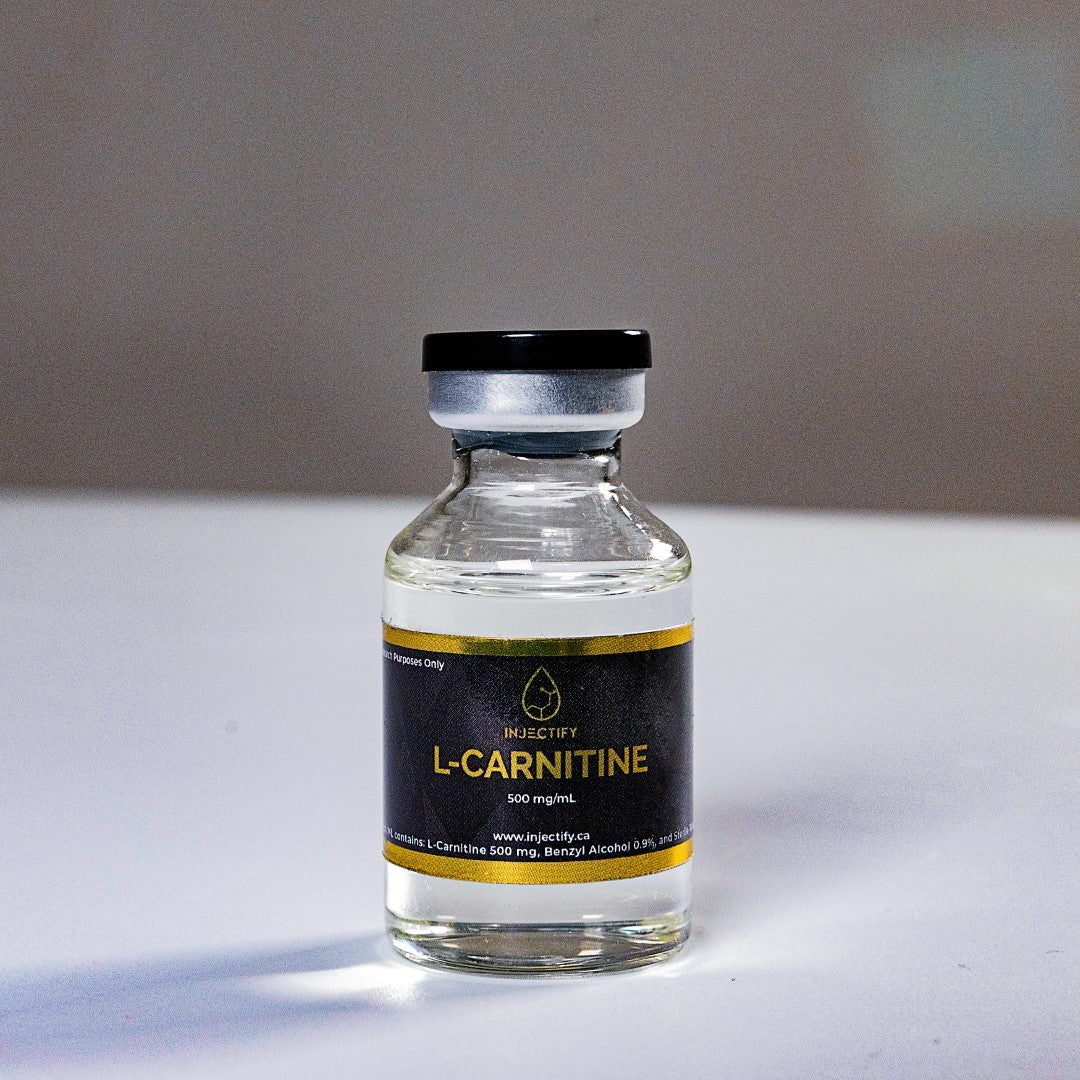L-Carnitine Injectable vs. Oral Supplement: Superior Absorption Rates
Introduction:
Hey gym bros! Ever wonder why some folks rave about L-carnitine injectables? Well, there's solid science behind it. A recent study has shown that injectable L-carnitine has way better absorption compared to oral supplements. If you're serious about your gains, you might want to consider switching to injectables. Let's break down the findings of this study in a way that's easy to digest (pun intended).
L-Carnitine Injectable vs. Oral Supplement: Superior Absorption for Enhanced Performance
When it comes to supplements, not all delivery methods are created equal. L-carnitine, a popular supplement among fitness enthusiasts, is no exception. A recent study published in the Journal of the International Society of Sports Nutrition (JISSN) reveals that injectable L-carnitine has significantly better absorption rates than oral supplements, making it the superior choice for those looking to maximize their performance and results.
Key Findings from the Study
The study in question meticulously compared the absorption rates and efficacy of oral and injectable L-carnitine. Here's what they found:
1. Absorption Rates: Injectable L-carnitine showed a much higher absorption rate compared to oral supplements. This means more of the active ingredient is available in the bloodstream to be used by your body.
2. Bioavailability: With injectables, the bioavailability—the proportion of L-carnitine that enters the circulation and can have an active effect—was markedly higher. This translates to more efficient and effective results.
3. Performance Benefits: Enhanced absorption and bioavailability lead to better performance outcomes. The study noted improvements in fat metabolism, increased energy levels, and faster muscle recovery among those using the injectable form.
Why Absorption Matters
Absorption rates are crucial because they determine how much of the supplement you actually benefit from. Oral supplements often face barriers like stomach acids and digestive enzymes, which can degrade the active ingredients before they even enter your bloodstream. Injectables, on the other hand, bypass the digestive system entirely, delivering the L-carnitine directly into your bloodstream for immediate use.
Practical Takeaways for Gym Enthusiasts
So, what does this mean for you and your workouts? Here are a few practical takeaways:
1. Enhanced Fat Loss: By improving fat metabolism, L-carnitine injectables can help you burn fat more efficiently, making it easier to achieve a lean physique.
2. Increased Energy Levels: Better absorption means more energy for your workouts, helping you push through those tough sessions and lift heavier.
3. Faster Recovery: With more L-carnitine available in your system, muscle recovery times are reduced, allowing you to train more frequently and with greater intensity.
Cost-Effectiveness of L-Carnitine Injectables
While injectable L-carnitine might seem pricier than some oral supplements, the superior absorption and bioavailability mean you're getting more bang for your buck. Essentially, less is more—you'll need a lower dose of injectables to achieve the same, if not better, results compared to oral forms.
Common Misconception
Some might think injectables are only for professional athletes or bodybuilders. Not true! Anyone looking to enhance their performance, energy levels, and recovery can benefit from L-carnitine injectables. They're easy to use and can be seamlessly incorporated into your fitness routine.
Conclusion
In summary, if you're looking to get the most out of your L-carnitine supplementation, injectables are the way to go. The superior absorption and bioavailability lead to better performance outcomes, making it a worthwhile investment for any serious gym enthusiast. For those who want to dive deeper into the details, you can refer to the full study published in the Journal of the International Society of Sports Nutrition HERE.
Another study on bioavailability is HERE.
Switch to L-carnitine injectables today and experience the difference for yourself. Your gains will thank you!
INJ
Injectable L-Carnitine
- FAST Shipping
- Secure Checkout
- 100% PURE Carnitine
Share





Disclaimer
FDA Disclaimer
The information presented on this website has not been reviewed or approved by the U.S. Food and Drug Administration. Any statements about our products are not intended to diagnose, treat, cure, or prevent any disease.
Research Use Only
All products sold by Injectify.is are intended solely for laboratory and research applications. They are not approved for human or veterinary use, nor are they available for purchase by or use on patients.
Not a Compounding Facility
Injectify.is operates exclusively as a chemical supplier and does not meet the definitions of a compounding pharmacy or chemical compounding facility under Section 503A of the Federal Food, Drug, and Cosmetic Act. Furthermore, Injectify.is is not an outsourcing facility as defined by Section 503B of the same Act.
Terms & Conditions
Before placing an order, please review our Terms & Conditions. By purchasing from Injectify.is, you acknowledge and agree to abide by these terms.

